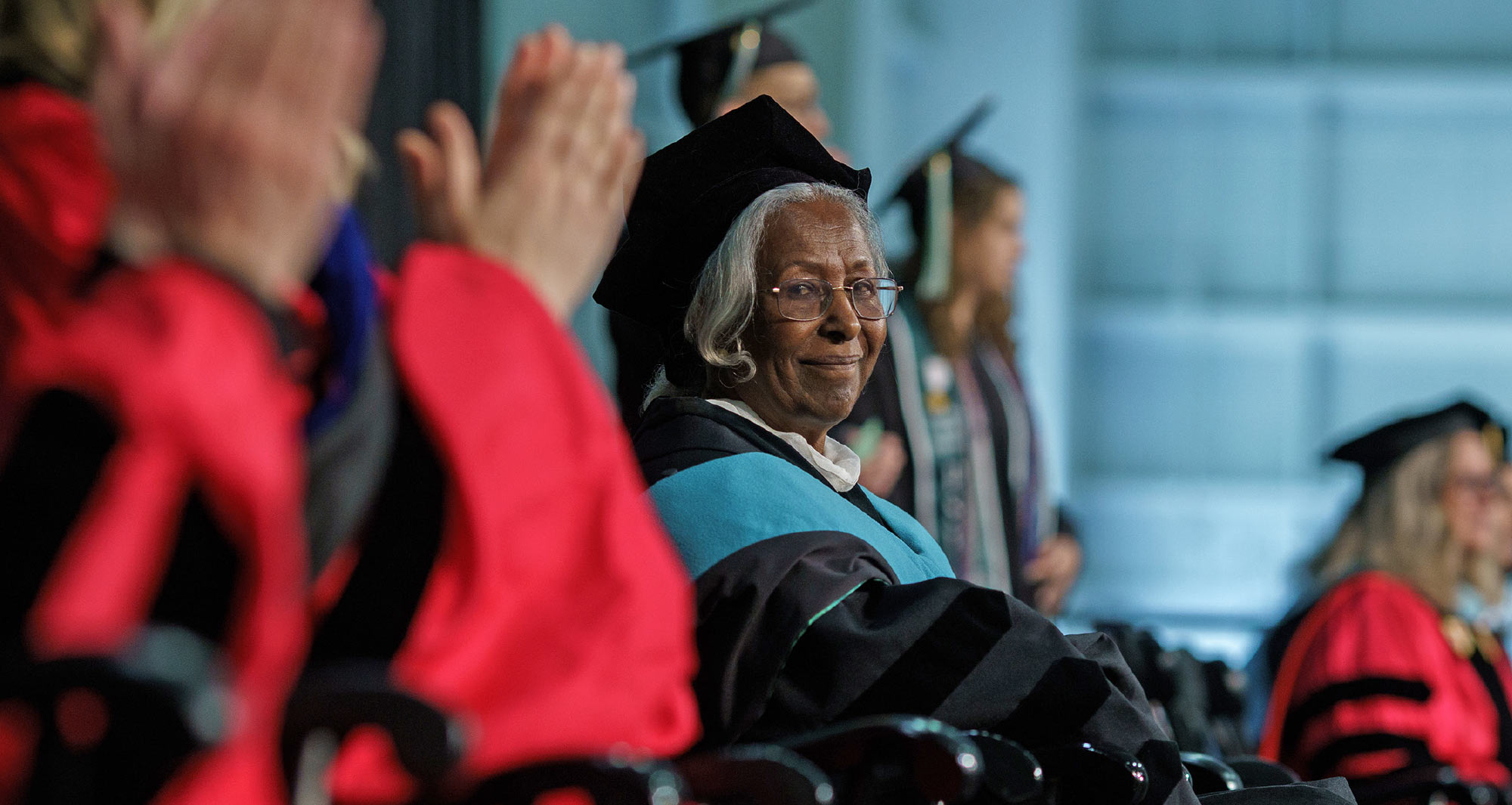
“You bear moral obligation in this fight for equity and social justice”
Gennet shared some lighter moments of her previous New Hampshire sojourn—slipping on the ice and being caught unaware of daylight savings time—along with profound discoveries. Most of all, she was surprised by Plymouth State’s predominately female student body. “Where I came from, the number of girls in schools were only handfuls, so it’s very important,” she says. “You have to have women’s education as a very important issue and it’s not for charity, and not just a question of rights, but of a country’s prosperity.
“In my country we say a person cannot clap with one hand. A country cannot prosper with only half of the population. Women are needed in every field, in every area. If a country has to develop, that’s what I believe.”
Gennet’s introduction to the American way of life had begun in high school, where Peace Corps volunteers served as teachers. “It was a very good program,” she recalled, remembering teachers from Illinois and Missouri. “They helped us because we had a lack of teachers.”
The dearth of native Ethiopian instructors was also the reality when Gennet attended Haile Selassie University (today’s Addis Ababa University). A goal was set to “Ethiopianize” the faculty and Gennet was among a select group of students who qualified for a USAID scholarship program to attend college in America. She came to Plymouth State, which then as now was well-regarded for its teacher training program.
She came to campus during the height of antiwar protests, which overlapped with the civil and women’s rights movements. “I came to believe that the equal rights movements have helped the United States to try and live up to the democratic ideals enshrined in the Declaration of Independence and the Constitution,” says Gennet. “I know the challenges continue even today, but I saw your freedom to protest, to force a president to step down through democratic means.”
Gennet was soon to experience the opposite in Ethiopia, which fell under the grip of a brutal military regime determined to silence dissent. Unable to turn a blind eye, she joined the opposition and paid a terrible price, including torture and more than three years in prison.
The nightmare lasted for 17 years, ending when civilian constitutional government was established in the 1990s. Putting her Plymouth learning to into practice, Gennet headed the Ministry of Education for 13 years, and was actively involved in formulating a new education and training strategy. She backed an affirmative-action policy to compensate disadvantaged female students and pupils of disfranchised national backgrounds, which has since expanded equitable access to education in Ethiopia at a spectacular rate. The net enrollment rate in primary schools has reached 100 percent, and the country now boasts 43 state universities in which women participate as graduate students and instructors.
After 13 years leading Ethiopian education, Gennet served for ten more years as her nation’s ambassador. Having previously earned her master’s degree, she completed doctoral studies at an Indian university. Today, retired from government service, she manages the Women’s Strategic Development Center, an NGO advocacy group committed to gender equality.
Gennet’s advocacy naturally encompasses her alma mater, and she encourages today’s Plymouth State University to build on its international legacy. “I think you have to reach out. You can attract students to come.” She also exhorted today’s graduates to follow her lead with a rousing call to public service, delivered nearly a half-century after her own Plymouth State Commencement.
“Let your accomplishment today remind you that you bear moral obligation in this fight for equity and social justice,” she said. “This much can be derived from the Constitution of the United States, the fulfillment of which is the test of America’s claim to democracy.”
A standing ovation greeted her inspiring remarks, marking yet another remarkable milestone in an extraordinary life of service.